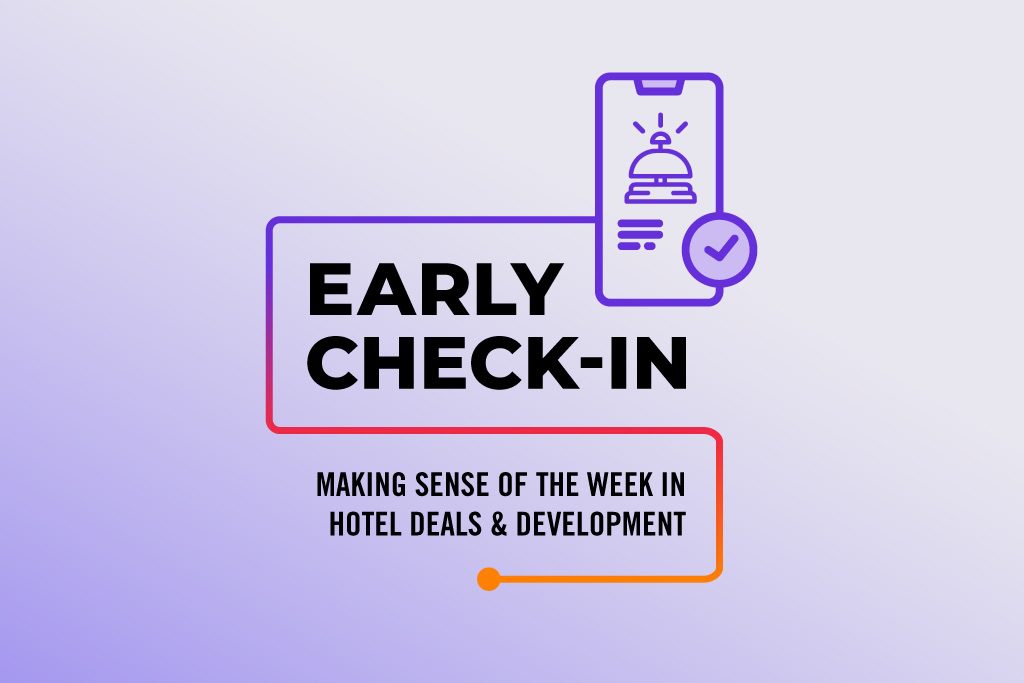European coffee retailer Julius Meinl seeks wealth by building a hotel brand
Skift grip
European consumer goods brand House of Julius Meinl aims to open 15 Julius apartments in the next few years. This effort is a litmus test for other premium brands seeking diversification.
Sean O’Neill
House of Julius Meinlwhich sells high-end consumer goods and coffee primarily in Central Europe, has diversified into high-end serviced apartments.
- The Vienna, Austria-based brand – a 158-year-old coffee and gourmet food retailer – plans to open 15 properties, with a total of around 2,000 rooms, within six years.
- In July, it opened its first hotel residence, Jules Prague. The 168-room property is wholly owned by the company. He has a Rating of 9.5 out of 10 on Booking.com
- Julius Meinl’s effort is a litmus test for other high-end brands that could build hotel brands as retailers and hospitality seek new avenues for long-term expansion.
- Retailers are following a path initiated by fashion brands. This path has sometimes apparently worked wellsuch as Bulgari Hotels (a partnership between the jewelry house and Marriott International since 2004). It has also occasionally cratered, such as when the fashion brand Missoni tried to create hotels.
Julius Meinl Alivebased in Prague, belongs to the Meinl family.
- The company believes its best real estate opportunity for serviced aparthotels straddles the Central European cities in which it is best known as a brand, such as Budapest, Warsaw, Vienna and Bucharest.
- “We will soon announce new acquisitions and the start of development,” said Julius Meinl VI, administrator of Julius Meinl Living.
- While it focuses on 15 Central European properties, its follow-on goal is to expand into Western Europe, likely starting with Germany and Italy. “We are negotiating for five more properties across Europe,” Meinl said.
The Julius brand is a bet on “bleisure”, or leisure and business travel mixed together, being here to stay.
- Units are usually equipped with kitchenettes and sofas or trundle beds.
- “We are the people who add ‘accessible luxury’ to your lives,” Meinl said, referring to the company’s brand in Central Europe.
- Convenience is at the heart of the product, Meinl said. A web application allows customers to perform many routine administrative tasks remotely.
- Efficiency is also at the heart of operations. Fewer than 30 staff members manage 168 rooms. Essentially, “extended stay” is more operationally cost effective – and automation has helped reduce labor requirements.
- “If you’re in the premium segment, you have pricing power,” Meinl said. “An extended stay has lower costs. That’s what drew us to the segment.
- “We are actively seeking properties in key downtown areas of our target cities,” Meinl said. “We are primarily looking to acquire luxury assets with at least 100 rooms. We strive for each building to be LEED Gold graduated.
- The hotel’s free breakfast includes Julius Meinl products, such as coffee, sausages and the sweetness of a chocolate cake and Coffee with Schlagobers (coffee with whipped cream). But the hotel is not serviced by Julius Meinl, and he expects guests to come regardless of their knowledge of the brand.
- In other words, it’s more of a financial game using capital from premium coffee and deli meats.

Julius Meinl Living took a detour before coming across his current strategy.
- Prior to adopting its current strategy, the business unit purchased the Art Nouveau Hotel Evropa in Prague and aimed to have it operated by Marriott International’s W Hotels. He then gave up. Meinl did not provide further details.
- “It was before my time,” Meinl said. “We started to develop it before deciding to pursue the aparthotel strategy.”
- Running 15 aparthotels is a business model with more leeway in his eyes, he said.
- “We would like to get to the point of managing over 1,000 keys,” Meinl said. “You get scale advantages from this point.”
- “My goal is to bring in institutional capital,” said Meinl, who comes from an institutional investment background. For the time being, the Private Equity arm of Julius Meinl is the main funder.
I always read the tips and reviews. contact me at [email protected] or through LinkedIn.


Comments are closed.